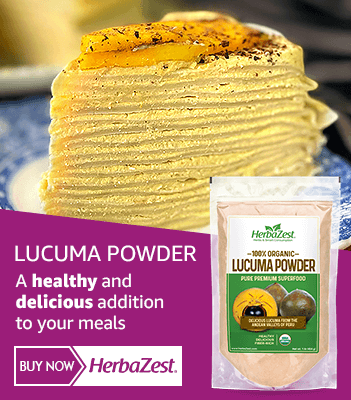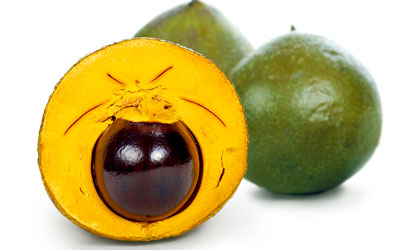Creamy and naturally sweet, lucuma is one of the most popular fruits of the Andes. While it is known as the gold of the Incas, lucuma has long been consumed by pre-Incan civilizations. Thanks to its nutritional composition, lucuma is said to have antioxidant and blood sugar-regulating abilities.1 However, very few studies have been conducted to date on lucuma and its health-promoting properties.
The Study
Researchers first extracted primary and secondary metabolites found in lucuma fruits, using three common biotypes harvested at the commercial ripeness stage: Rosalia, Montero, and Leiva 1.
Then they analyzed in vitro antioxidant and antihyperglycemic activities of those metabolites, also evaluating whether they're affected by different stages of ripeness.
The Results
Researchers identified significant amounts of sugars (e.g., glucose, fructose, sucrose, and myo-inositol), organic acids (e.g., tartaric, quinic, malic, and ascorbic acids), phenolic compounds, and carotenoids in lucuma.
While all lucuma biotypes were rich in said nutrients and beneficial compounds, their exact amounts depended on the biotype and ripeness stage.
Lucuma has also shown to possess an antioxidant capacity, which was the highest in the Rosalia biotype. Researchers indicated that lucuma's antioxidant capacity is likely due to its phenolic compounds.
Lucuma's components have also been shown to inhibit α-glucosidase, which is an enzyme in the digestive tract that helps delay carbohydrate digestion, thus preventing sudden blood glucose spikes.
What Does this Mean?
The results of this study suggest that besides its flavor attributes, lucuma is rich in beneficial compounds that can enhance human health in several ways. The most potent properties of lucuma relate to the fruit's antioxidant and antihyperglycemic capacities.
These findings are exciting as they can lead to the development of lucuma-based functional foods to inhibit free radicals and help regulate blood sugar levels, among other potential medicinal uses. However, studies involving humans are necessary to further explore lucuma's health benefits.
Other herbs that are good for blood sugar control include blueberries, apples, oats, and chia seeds.
Sources
- Food Chemistry, Characterization of main primary and secondary metabolites and in vitro antioxidant and antihyperglycemic properties in the mesocarp of three biotypes of Pouteria lucuma, 2016
Footnotes:
- Scientia Agropecuaria. (2020). Lucuma (Pouteria lucuma): Composition, bioactive components, antioxidant activity, uses and beneficial properties for health. Retrieved August 24, 2023, from http://www.scielo.org.pe/scielo.php?script=sci_arttext&pid=S2077-99172020000100135







